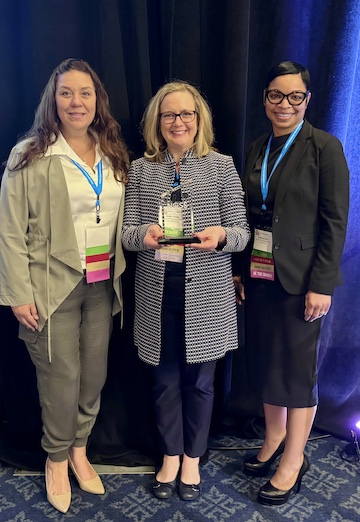Greenville Technical College’s 360 Institute receives national award
February 21, 2024The 360 Institute at Greenville Technical College received a national award and recognition as a Program of Promise by the National Organization for Student Success at the organization’s recent conference.
Funded by a $2.1 million Title III grant from the U.S. Department of Education, the 360 Institute works to increase persistence and retention rates for first-time students, thus leading to higher graduation rates. The effort is focused on holistic student advising, addressing basic needs insecurities of students, and delivering professional development for faculty and staff centered around a culture of care.
Since The 360 Institute began in fall 2021, over 200 students have participated. During the first semester, students are enrolled in a Freshman Seminar class taught by their 360 advisor. The classes are contextualized to focus on career readiness and financial literacy in order to prepare the students for their second semester on-campus internship. In addition to the class, the students meet individually with their instructor/advisor once a month, meet with a career specialist twice during the semester, and attend financial literacy events.
GTC is working to address student basic needs insecurities by partnering with The Hope Center at Temple University. Through this two-year partnership, GTC receives coaching support from The Hope Center as well as access to a Student Basic Needs Survey. Survey data indicates that more than half of GTC’s students have experienced basic needs insecurities. As a result, the college’s Student Assistance and Resources (STAR) Center and its food pantry have moved to a larger, more prominent space on campus. The new space allows for the expansion of services as well as connecting students with community partners.
The third component of the Title III grant is to develop and enhance the college’s culture of care through employee professional development. Title III employees have facilitated five poverty simulations over the past two years. The Title III grant has also paid for employees to attend national conferences and professional development trainings focused on mental health first aid, financial literacy, poverty, and work with first-generation college students.




















